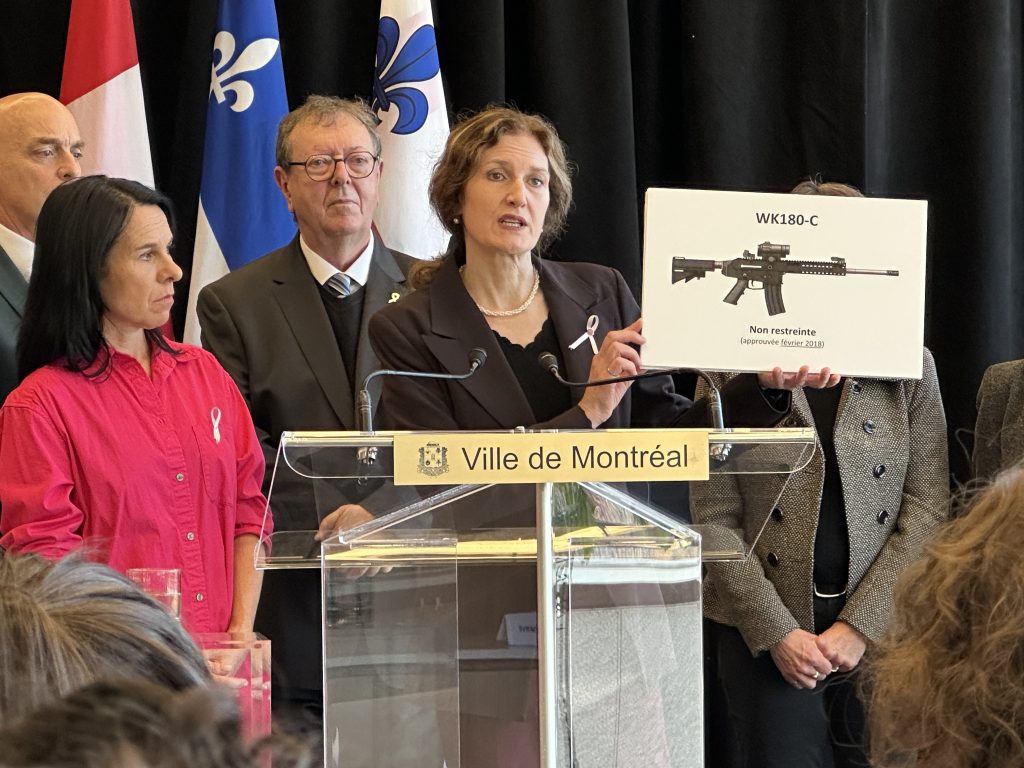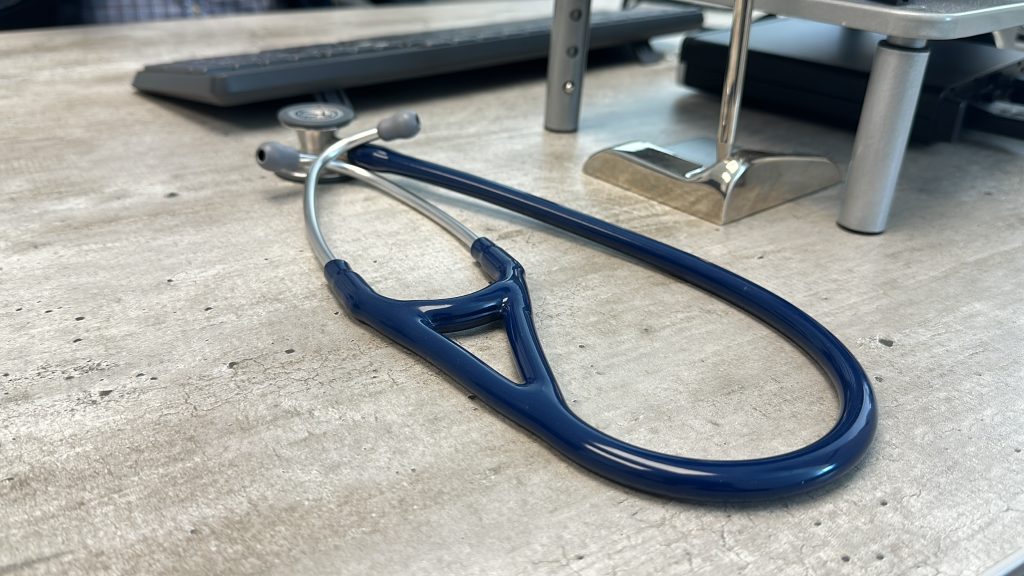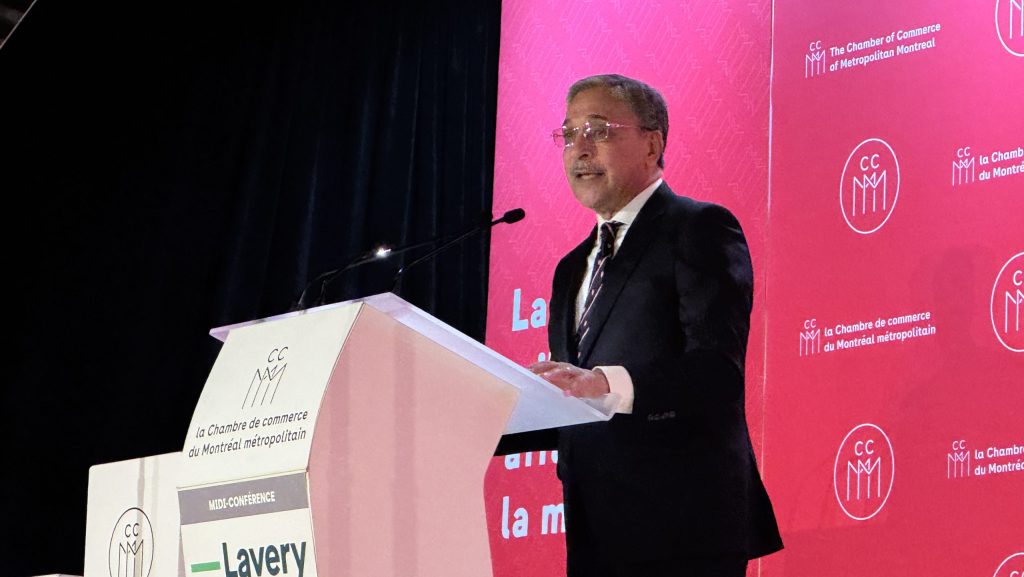Mayor Plante, Polytechnique massacre survivors call on Ottawa for stricter gun control

Posted November 19, 2024 4:25 pm.
Last Updated November 19, 2024 5:45 pm.
Montreal Mayor Valérie Plante, along with gun control advocacy group PolySeSouvient, made up of survivors of the 1989 Polytechnique massacre, are calling on the federal government to intervene and provide tighter gun control laws across Canada.
“Today we are invited here because we know that [Bill] C-21 was not complete,” said Nathalie Provost, survivor of the massacre and spokesperson for PolySeSouvient. “We are not banning all assault-style weapons on the market, just those that had been banned in 2020, so we are saying here today that for us, it’s time to complete what they promise they will do.”
Nathalie Provost was shot four times on Dec. 6, 1989 by a gunman who said he was there to fight feminism. Heidi Rathjen was in a nearby study room during the attack that took the lives of 14 young women.
“Being a spokesperson for PolySeSouvient helped me keep alive the memory of my classmates, but also having a goal doing it,” Provost said.
In May 2020, more than 1,500 models of firearms were banned by the Liberal government in the aftermath of the Nova Scotia mass shooting that left 23 people dead, including the gunman.
The group is calling for a permanent and complete ban on assault-style weapons before the federal government begins their buyback program this fall, which Ottawa says includes about 2,000 firearm models.
The group it met with federal Public Safety Minister Dominic LeBlanc one year ago and he assured them the list would be completed by this month.
“It’s non-restricted, meaning it’s treated like an ordinary hunting rifle,” said Heidi Rathjen, witness of the Polytechnique massacre and coordinator for PolySeSouvient, as she pointed to a WK180-C gun.
“There are hundreds of models like this that remain legal, and that we’re counting on Minister LeBlanc to prohibit through a second order in council prohibit through a second order in council before the launch of the buyback in order to make sure the buyback includes all assault weapons.”

The office of Dominic LeBlanc, Canada’s Minister of Public Safety, tells CityNews in a statement: “[…] Our government has taken the strongest gun control measures Canada has seen in the last 25 years.
“During our mandate, we put in place a national freeze on the purchase, transfer and import of handguns, tougher penalties for gun traffickers, new offences for possessing or distributing computer data for the purpose of manufacturing a prohibited firearm, and the requirement to hold a valid firearms licence to acquire handgun barrels and slides – enabling us to better combat ghost guns.”
The federal government says their efforts are focused on successfully launching the buyback program.
First, the government will buy banned firearms from retail stores and have them destroyed. An individual buyback program for people who own prohibited weapons begins next year.
“By participating in the program, owners and businesses will be fairly compensated for their firearms – but if they decide not to participate, not only will they not receive compensation, they will still be obligated to make them inoperable by the time the Order expires, or face criminal liability,” the statement reads.
The group estimates about 450 firearms need to be added to the list of banned weapons and it is urging the government to complete the task before the next federal election.
Plante says hundreds of military models are still exempt for “arbitrary” reasons, adding that the the government must implement additional firearms controls.
“There has to be different level, different types of government solutions and this is one that only the federal government can put together,” Plante said. “That’s what they can do. That would be so strong and straightforward.
Plante says she wants to see this done in the “very short term.”
“I’m confident that the the federal government has everything he needs to just do what he said he would last year just to finish and put all the the assault weapons on the list,” she said.
For Provost, the move needs to come as soon as possible.
“I think it’s more important because of the probable next elections, they have to say that ‘it’s job done.'”
–With files from The Canadian Press








